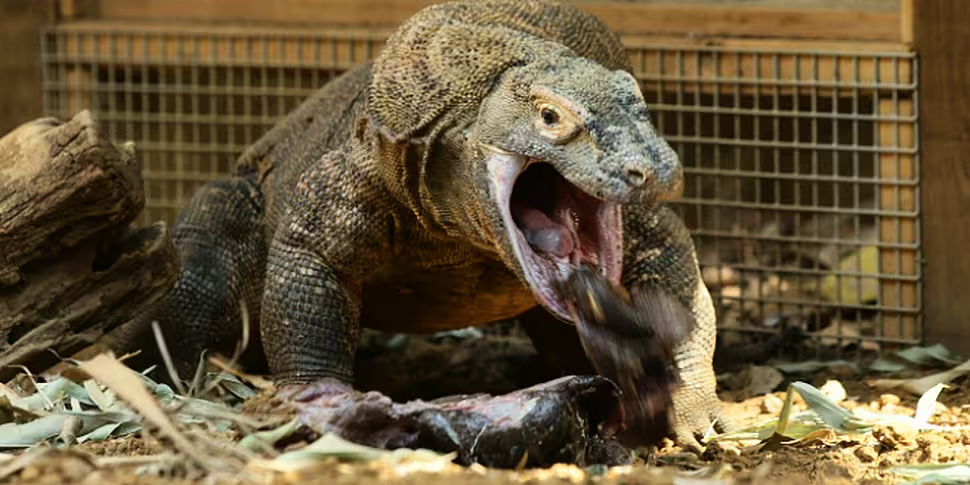A cameraman filming Komodo dragons in Indonesia has released a remarkable video of the day he came home to find one in his toilet.
The next instalment of BBC’s epic Planet Earth series is due to hit screens on Sunday evening.
While out filming for the series, BBC cameraman Mark MacEwan returned home from a long day’s shoot only to walk in on one of the massive reptiles in his hotel bathroom.
A video posted to the BBC Earth YouTube channel shows the crew’s attempts to coax the dragon out of his room and back into the wild.
Komodo dragons are the largest living species of reptile and have been known to attack and kill humans – especially when cornered.
They can reach up to 10 feet in length and weight about 90kg when fully grown.
Despite their fearsome reputation, they are listed as vulnerable because their habitats have been steadily eroded by humans.
They are protected under Indonesian law and a national park - Komodo National Park - was set up to help conserve them.
The crew were eventually able to tempt the animal to move using a piece of rotten meat on a string - despite the creature's best attempts to hide under the bed.
Before leaving however, the animal left the crew with a final insult - by defecating on the floor.
You can see how events unfolded in the video below:
The first episode of Planet Earth II is on BBC One at 8pm on Sunday.
The original series, released ten years ago was the first natural history series to be filmed in high definition.
Reaching a global audience of over half a billion people, the show was a landmark success for the broadcaster.
The new series promises to, “immerse audiences in the most spectacular landscapes and habitats on Earth and bring them eye to eye with the animals that live there.”
The programme's creators said advances in filming technology over the past decade have made it possible to “reveal the natural world in entirely new ways.”
“From the highest mountains to the remotest islands and from the richest jungles to the harshest deserts, Planet Earth II focuses on the most iconic habitats on land and seeks to bring audiences an experience of what it’s like to live in these great wildernesses,” said a BBC statement.
For the first time, the show will also feature the behaviour of animals in city settings and discover the “surprising ways that some animals are managing to thrive in the urban world.”
The series took over three years to make with 117 filming trips in 40 different countries and a total of 2089 shooting days:









